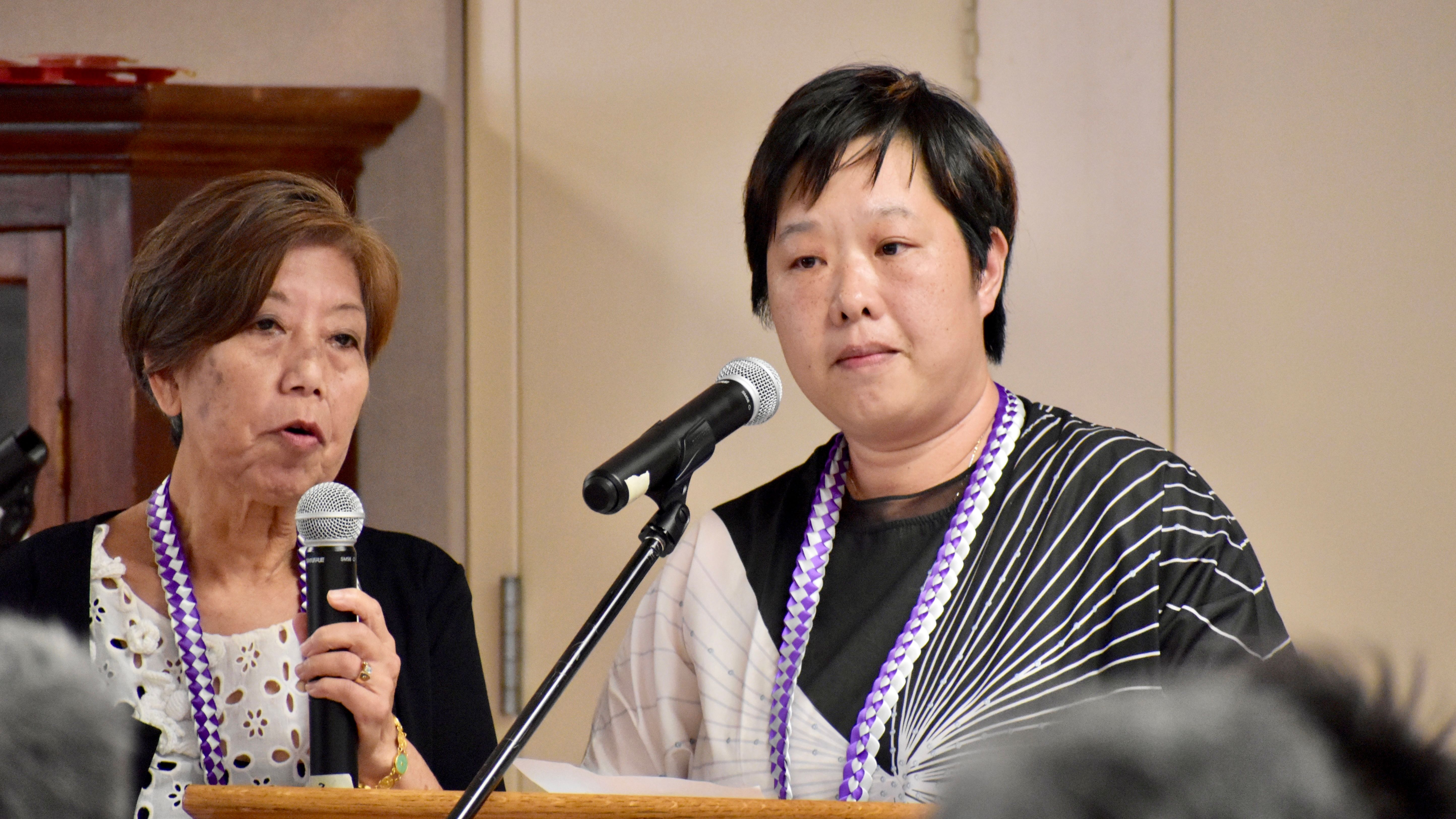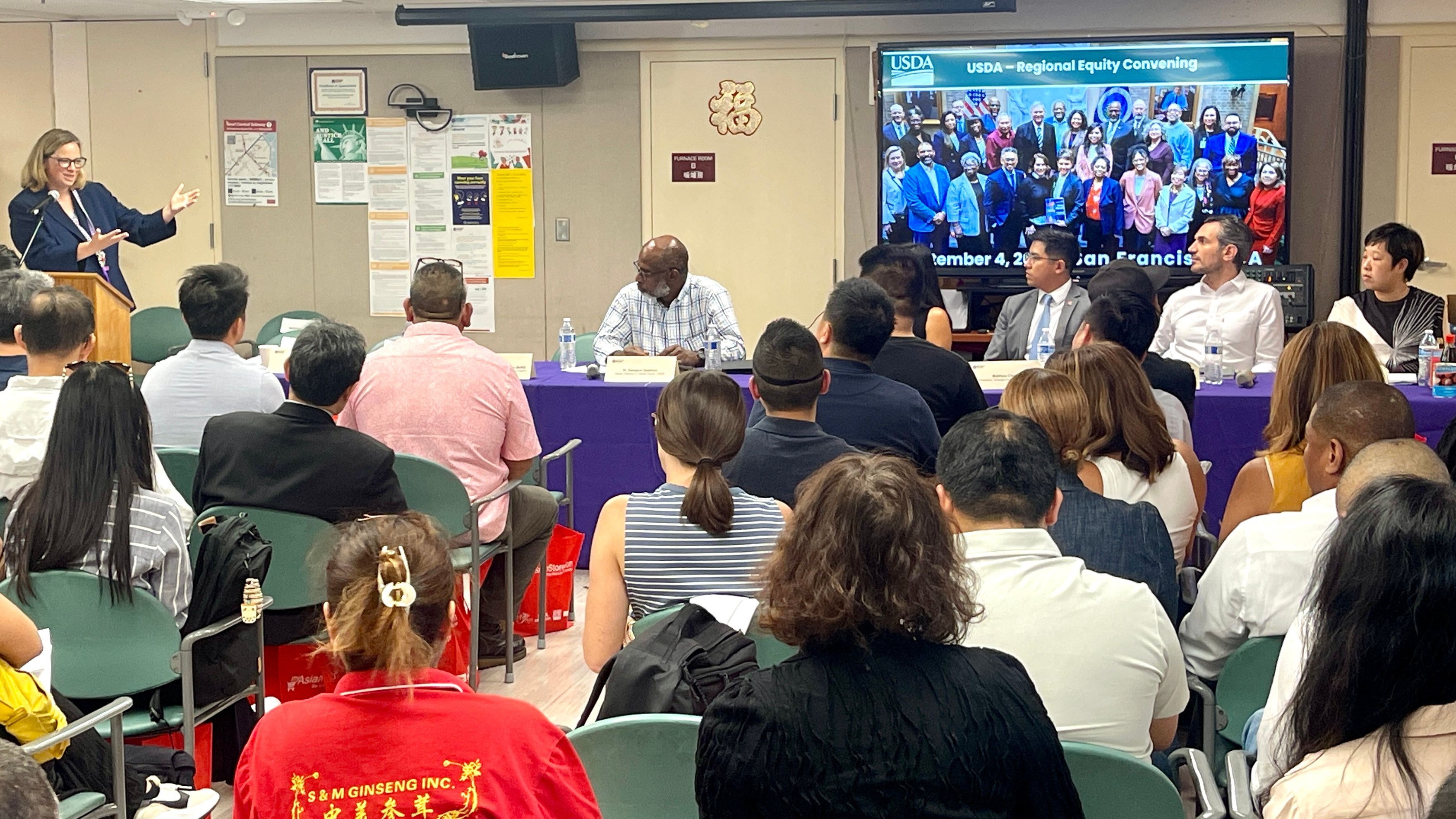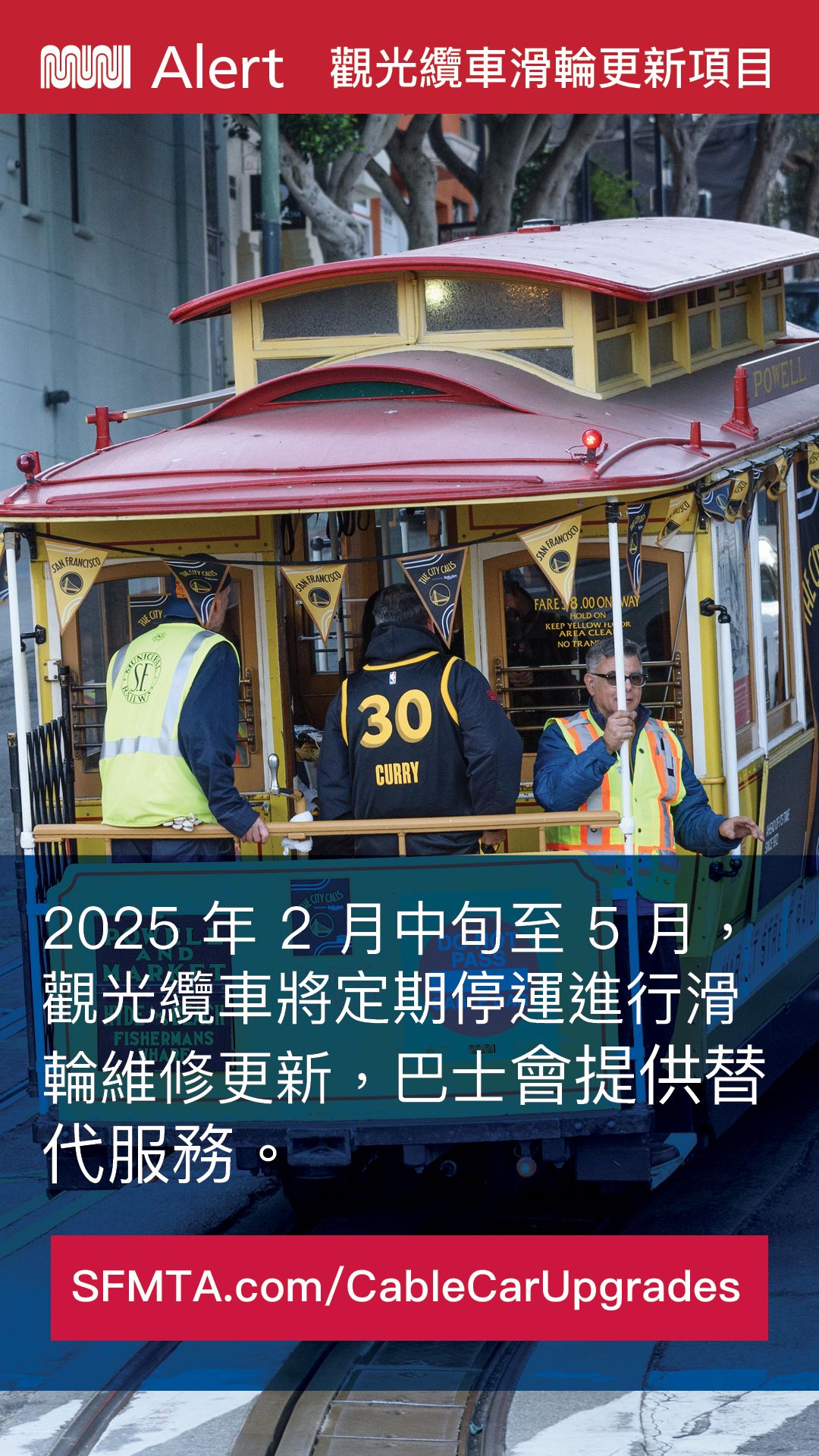Asian food businesses urge U.S. Department of Agriculture to diversify its marketing and contracting programs


SAN FRANCISCO — Asian food businesses urged the U.S. Department of Agriculture (USDA) to diversify its marketing and contracting programs to include food and crops from the Asian community who make up 15.5% of the population in California and 7.2% across the nation.
Under the leadership of U.S. Department of Agriculture Equity Commissioner Yvonne Lee, USDA officials and representatives joined the Self-Help for the Elderly on September 4 to hold a Northern California community convening for the first time in San Francisco Chinatown to listen to the Chinese American food community.
President Joe Biden signed an executive order in January 2021 on advancing racial equity and support for underserved communities through the federal government once he was sworn into office.
USDA Equity Commission was launched in February 2022 following Biden's executive order to provide recommendations to the Secretary of Agriculture focusing on the racial equity issues in its programs and services and strengthen accountability within the USDA.
Lee was appointed to the USDA Equity Commission among the 41 commission and subcommittee members. In February 2024, the Equity Commission published its final report which issued 66 recommendations in the report.
Under the advice of the Equity Commission, USDA is taking action to ensure equal access to resources, closes the racial wealth gap, and addresses the longstanding inequities, according to the USDA.
“Dating back to the 1880s, Asian American farmers have contributed two-thirds of California’s produce. Asian American growers introduced asparagus, celery, strawberries, sugar, and beans, to the American palate,” Lee explained.
“When we examine how we want to advance social and economic justice for underrepresented communities and families, we must consider local food systems and how they were shaped. Discriminatory laws dissipated much of Asian American businesses and producers’ work in the agriculture industry,” said Lee.
"USDA is so critical to our community’s food system, yet few knew about the immense opportunities it offers to farmers and food businesses," Lee added.
"This gathering will address advancing food culture diversity and wealth equity for underserved communities such as the Chinese American community," said Anni Chung, President and CEO of Self-Help for the Elderly.

"USDA is responsible for the safety, availability, accessibility, and affordability of everything we consume: vegetables, fruits, poultry and meat, imported sauces, and dried food. It oversees food stamps, food pantries, and women and infant food programs," Chung said it was the first time that the USDA had conversed with the Asian food community.
"We are hearing how we can better serve and make sure everyone has access to USDA," Jennifer Lester Moffitt, Under Secretary of Agriculture for Marketing and Regulatory Programs in USDA, said in her remarks at the convening held at the Self-Help for the Elderly Lady Shaw Senior Center in San Francisco Chinatown. "Our doors are open for you."
Members of the Oriental Food Association which represents the Asian food importers in Northern California attended the meeting. "Asian food is our culture, it is also our health," said Matthew Chin, President of the Oriental Food Association.
"Small business is the backbone of the economy." Chin said. "As importers, we always face challenges. We serve 7% to 8% Asians in the country. Our population is over 15% in California. We hope that our students are not only provided with chicken nuggets in schools, but also fresh healthy Asian meals."
Chin and their importer members strongly believed that USDA could do more to include and introduce fresh and healthy Asian food to all Americans.
Mill Lei is an immigrant from China and owns an Asian grocery store in San Francisco Chinatown. She shared her experience of operating a small business selling domestic- and foreign-made Asian food.
"We have worked very hard to save money to open an Asian food store in Chinatown. As new immigrants, we don't have much funds. We sell food and crops primarily from the Asian community in the U.S. and Asian countries," said Lei.
Lei said the profit margin for her business has always been very low. "We have to face many challenges, especially during the COVID pandemic because of the language barrier. We are still working very hard to survive in order to serve our community members who need unique Asian food in their daily life. We have
contributed to the United States. We have hired workers," said Lei.
Lei has never been working with the USDA. She urged the USDA to understand more of their challenges and provide equal opportunities to the Asian stakeholders.
- In a 52-2 vote, Chinese American Democratic Club endorses to recall Supervisor Engardio as a result of passage of Proposition K
- An amnesty program in San Francisco is back through July 1, 2025 to legalize existing awnings
- Opinion: Political betrayal warrants recall
- Do empty yellow loading zones best serve the San Francisco Chinatown community?
- T&T Supermarket, largest Asian grocery chain in Canada, announces to open at San Francisco City Center on Geary Blvd. in winter 2026
- (Breaking news: Charlene Wang wins in the Oakland's special election) Charlene Wang runs for Oakland District 2 Councilmember on April 15, 2025 to represent Oakland Chinatown
- Mayor Lurie announces plans to support small businesses including First Year Free program waiving fees for new businesses
- 12 speed safety camera systems out of 33 begin to operate in San Francisco by first issuing warnings instead of citations for 60 days






